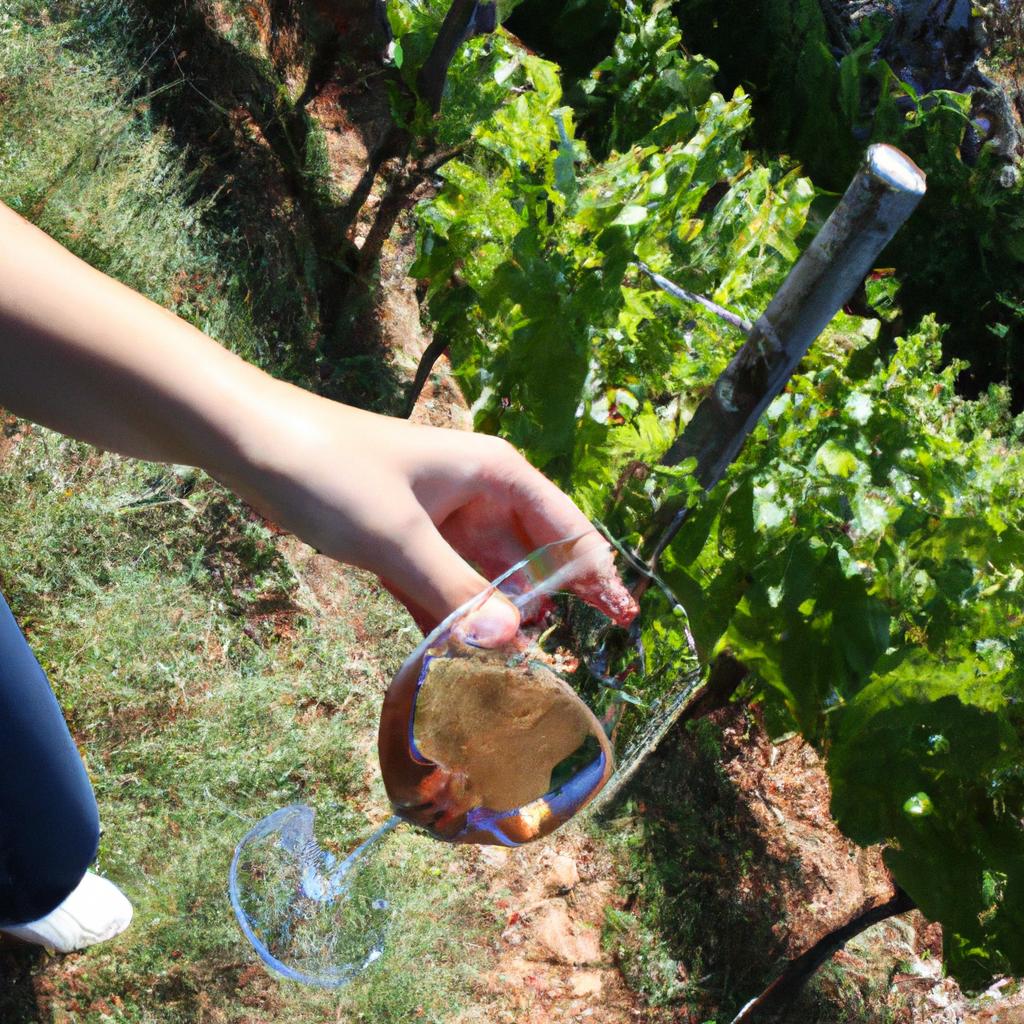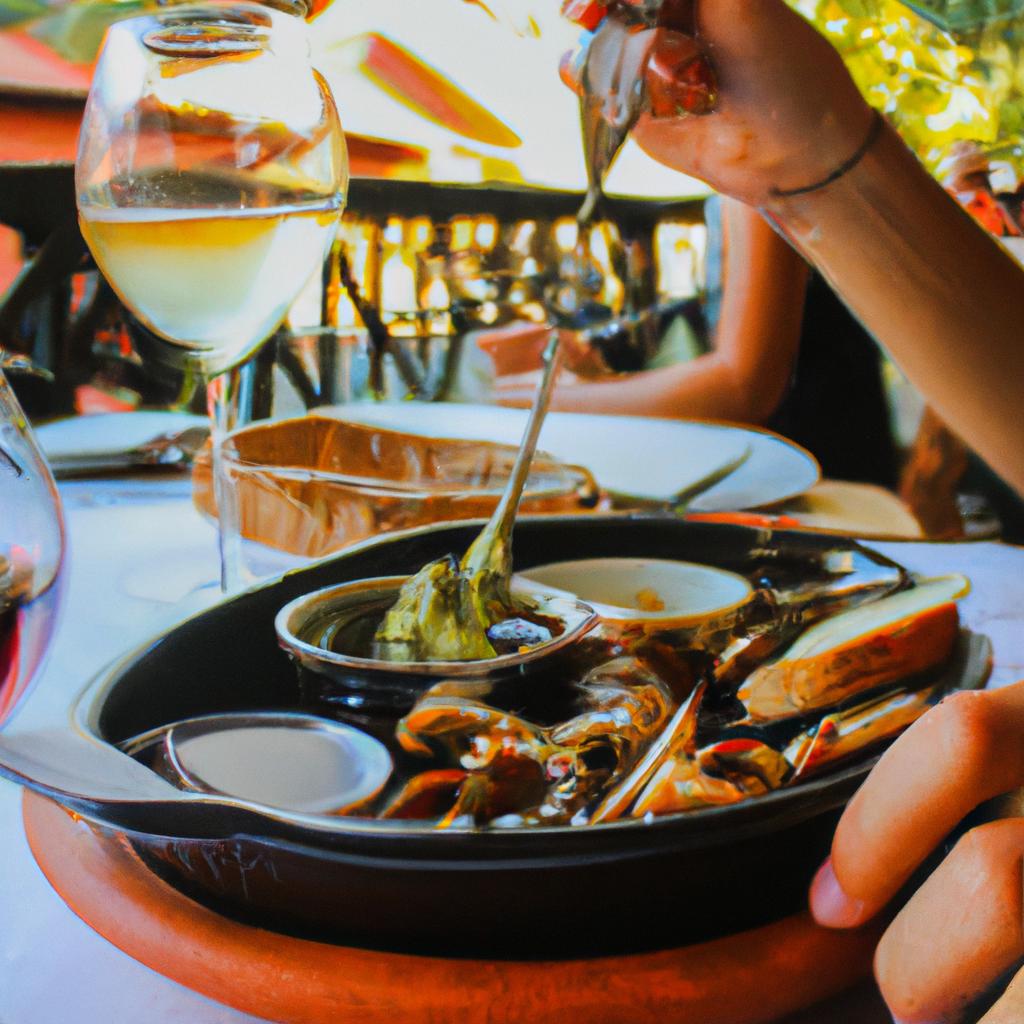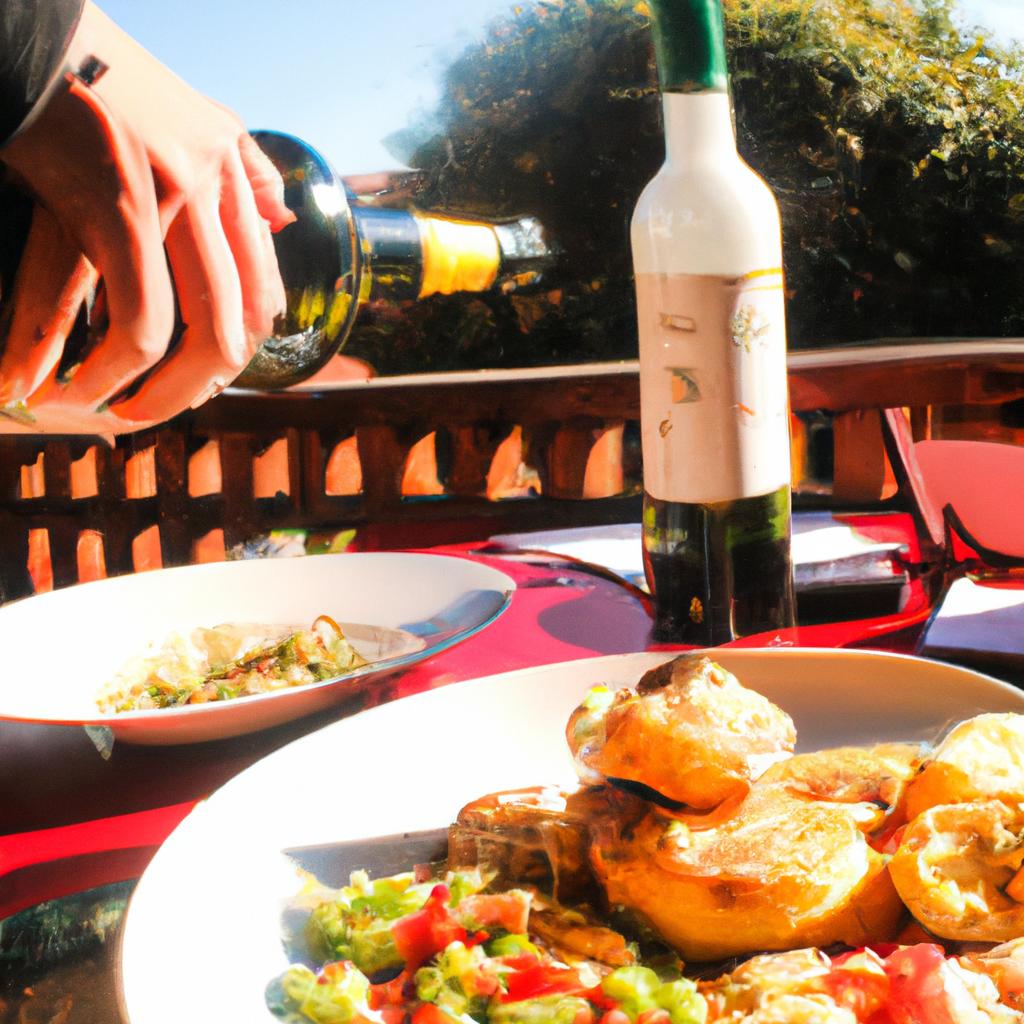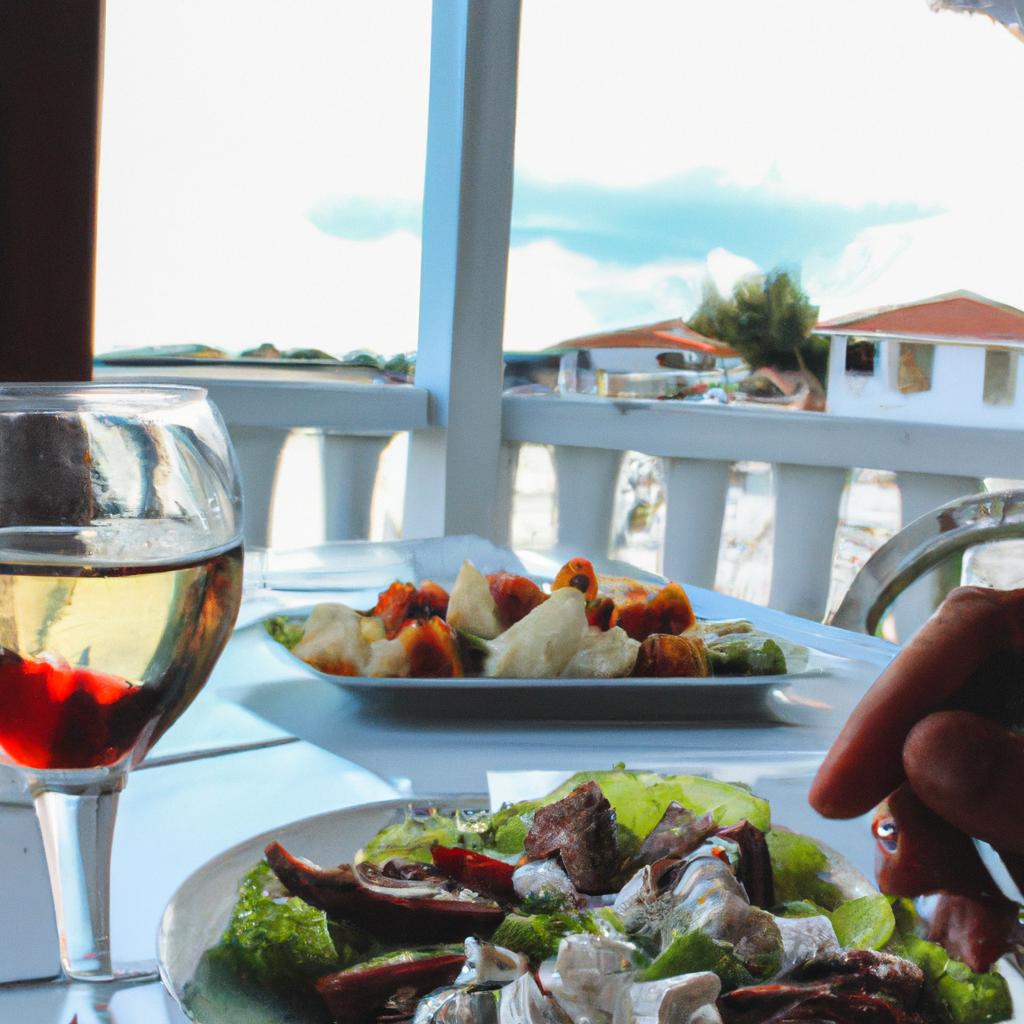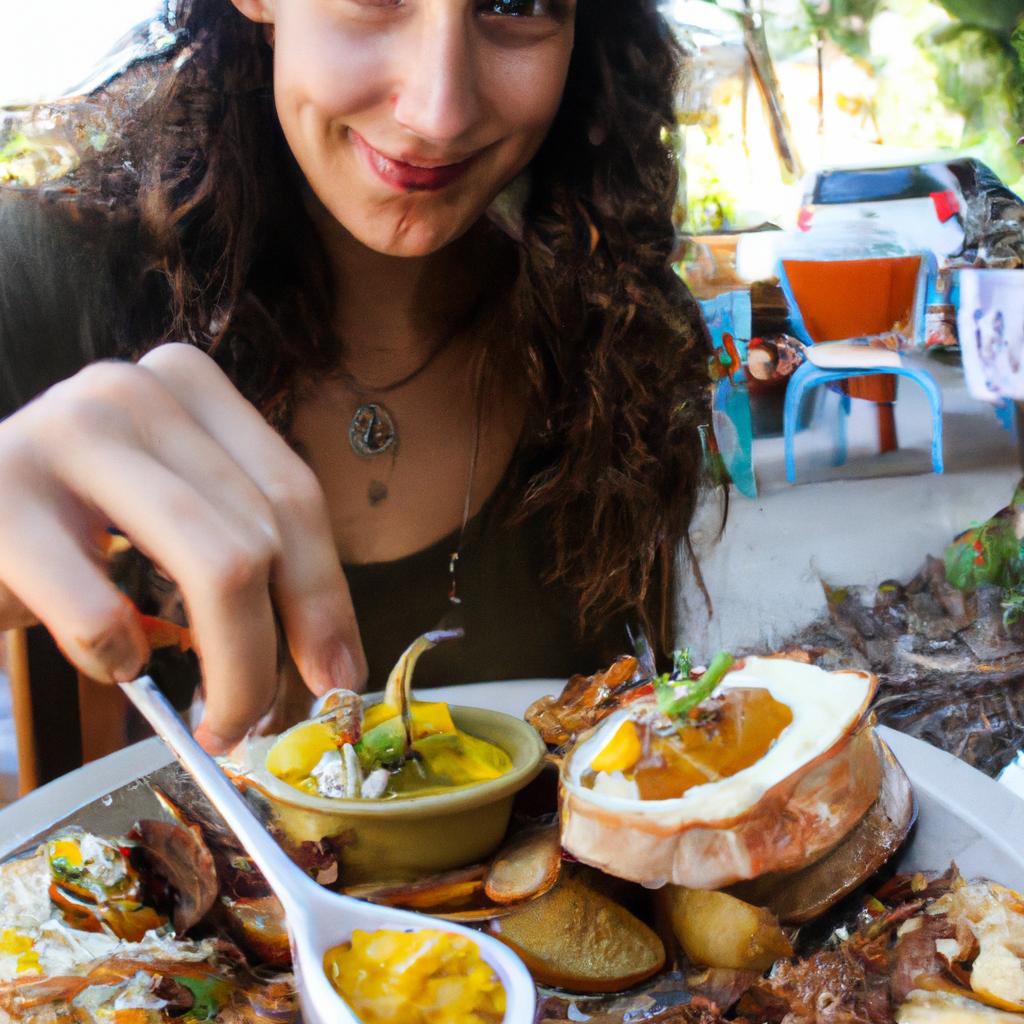Cooking Classes: Culinary Delights on Destinations Events Food and Wine Tours
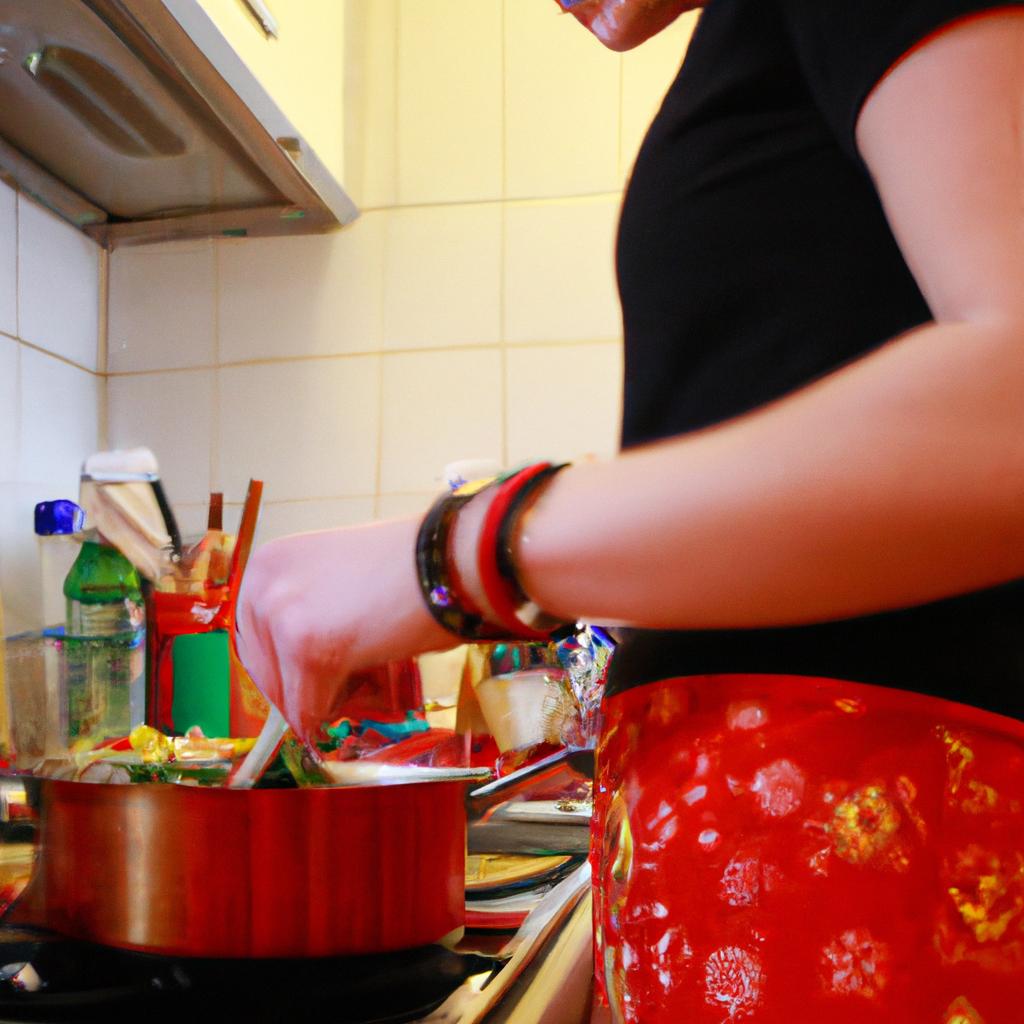
Cooking classes have become increasingly popular in recent years, offering individuals the opportunity to enhance their culinary skills and discover new flavors from around the world. These immersive experiences not only provide participants with hands-on cooking techniques but also offer insight into the cultural significance of various cuisines. For instance, imagine a group of aspiring chefs attending a cooking class in Tuscany, Italy. As they gather fresh ingredients from local markets and learn traditional recipes passed down through generations, they not only acquire practical knowledge but also gain a deeper understanding of Italian culture and traditions.
In addition to being educational and culturally enriching, cooking classes have evolved into destination events that combine food, wine tours, and unique travel experiences. Travelers now seek out destinations where they can immerse themselves in local gastronomic delights while honing their culinary expertise. From exploring vibrant spice markets in Morocco to mastering the art of sushi-making in Japan, these events cater to both seasoned cooks looking to expand their repertoire and beginners eager to embark on an unforgettable culinary adventure. By participating in these food-focused journeys, individuals can indulge their passion for cuisine while discovering new destinations through a lens of flavor exploration.
With the increasing availability of cooking classes tailored to different skill levels and interests, there has never been a better time to embark on a culinary journey. Whether you are a beginner or an experienced cook, there is a cooking class out there that will suit your needs and desires. From basic knife skills to advanced pastry techniques, you can find classes that cover a wide range of topics and cuisines.
Furthermore, with the rise of online cooking classes, you can now learn from renowned chefs and experts from the comfort of your own home. These virtual classes provide step-by-step instructions, recipe demonstrations, and even interactive Q&A sessions, allowing you to learn at your own pace and convenience.
In addition to honing your skills in the kitchen, cooking classes also offer a unique opportunity to connect with like-minded individuals who share your passion for food. Whether it’s through group cooking activities or post-class tastings, these classes foster a sense of community and camaraderie among participants.
So whether you want to impress your friends with a homemade French pastry or explore the flavors of Southeast Asia, taking a cooking class is a fantastic way to expand your culinary horizons and create memorable experiences. So why wait? Sign up for a cooking class today and let your culinary adventure begin!
Benefits of Taking Cooking Classes
Imagine this scenario: you have always been fascinated by the art of cooking, but your culinary skills are limited to making a basic omelet. You dream of creating mouth-watering dishes that impress family and friends. This is where taking cooking classes can be immensely beneficial.
Firstly, cooking classes provide hands-on experience and practical knowledge that cannot be obtained from simply reading cookbooks or watching online tutorials. In these classes, participants learn directly from experienced chefs who guide them through each step of the cooking process. For example, during a pasta-making class, students might start with mixing flour and eggs to create dough, then move on to rolling and cutting it into various shapes. By following expert instructions and receiving immediate feedback, individuals gain confidence in their abilities and develop essential techniques.
Moreover, cooking classes offer an opportunity for social interaction and networking among like-minded individuals. Whether you are attending a one-day workshop or a week-long course at a culinary school, you will likely meet people who share your passion for food. These connections can lead to lasting friendships or even professional collaborations in the future. Picture yourself exchanging recipes with newfound buddies or organizing dinner parties together!
In addition to the personal growth aspect, taking cooking classes can also have numerous health benefits:
- Learning how to prepare nutritious meals using fresh ingredients promotes healthier eating habits.
- Engaging in physical activities such as chopping vegetables or kneading dough improves hand-eye coordination and fine motor skills.
- Exploring different cuisines introduces diverse flavors and encourages dietary diversity.
- The sense of accomplishment derived from successfully preparing a delicious meal boosts self-esteem and overall well-being.
By enrolling in cooking classes, individuals not only enhance their culinary skills but also improve their overall quality of life. They acquire valuable knowledge while enjoying the company of fellow food enthusiasts along the way. With these benefits in mind, let us now delve into popular cooking techniques worth exploring.
(Note: Popular Cooking Techniques to Learn)
Popular Cooking Techniques to Learn
Transitioning seamlessly from the previous section, let’s explore some popular cooking techniques that you can learn through cooking classes. To illustrate the impact of these techniques, we will delve into the art of making pasta from scratch.
Imagine yourself in a bustling Italian kitchen, surrounded by flour-dusted countertops and the aroma of simmering tomato sauce. As you enroll in a cooking class dedicated to pasta-making, you embark on a culinary journey that goes beyond simply boiling store-bought noodles. Through hands-on instruction and expert guidance, you acquire valuable skills that elevate your home-cooked meals to new heights.
Here are some essential cooking techniques often taught in such classes:
- Pasta Making – Discover the secrets behind creating silky-smooth dough before mastering various shapes like fettuccine or tortellini.
- Knife Skills – Learn how to handle knives efficiently and safely as you chop vegetables with precision, ensuring even cooking and appealing presentation.
- Sauce Preparation – Explore different methods for preparing classic sauces such as marinara or Alfredo, balancing flavors while achieving desired consistencies.
- Flavor Pairings – Gain insights into combining complementary ingredients to create delectable flavor profiles that tantalize taste buds.
To further highlight the benefits of taking these classes, consider the following table showcasing positive outcomes experienced by individuals who have participated in culinary workshops:
| Positive Outcomes | Description |
|---|---|
| Enhanced Creativity | Participants develop innovative approaches to recipe creation |
| Expanded Palate | Exposure to diverse cuisines broadens their gastronomic horizons |
| Improved Health Habits | Learning healthy cooking techniques promotes better dietary choices |
| Social Connections | Interacting with fellow food enthusiasts fosters new friendships |
Incorporating these techniques into your culinary repertoire not only enhances your cooking abilities but also enriches your overall dining experience. By participating in cooking classes that focus on popular and useful skills, you equip yourself with the tools necessary to create memorable meals for family and friends.
Transitioning smoothly into our next section, let’s explore some tips for choosing the right cooking class so that you can make the most out of your culinary learning journey.
Tips for Choosing the Right Cooking Class
Transitioning from popular cooking techniques, let’s now explore some tips for choosing the right cooking class. To illustrate the importance of making an informed decision, consider a hypothetical scenario where Sarah is passionate about learning French cuisine. She decides to enroll in a cooking class without thoroughly researching it first.
Firstly, when selecting a cooking class, it is crucial to consider your personal goals and interests. Are you looking to master specific culinary skills or learn about a particular type of cuisine? For instance, if you are interested in baking bread or perfecting pastry techniques, seek out classes that specialize in these areas. By aligning your preferences with the offered curriculum, you can ensure an enriching experience tailored to your needs.
Secondly, take into account the instructor’s qualifications and teaching style. A skilled instructor can greatly enhance your learning journey by providing expert guidance and sharing valuable insights. Look for instructors who have extensive experience in the culinary industry or possess relevant certifications. Additionally, consider their teaching approach—do they emphasize hands-on learning or focus more on demonstration? Finding an instructor whose methods resonate with your preferred learning style will contribute to a fulfilling educational experience.
Thirdly, think about the class size and ambiance. Smaller class sizes often allow for more personalized attention and interaction with both fellow students and the instructor. This fosters a supportive environment conducive to asking questions and receiving individualized feedback. Moreover, pay attention to the overall atmosphere of the facility—the cleanliness of the kitchen space and availability of modern equipment can significantly impact your comfort level during lessons.
- Gain confidence in preparing gourmet meals.
- Expand your culinary knowledge through immersive experiences.
- Connect with like-minded individuals who share your passion for cooking.
- Create lasting memories while exploring new flavors and techniques.
Furthermore, let’s consider a table that showcases different factors to consider when choosing a cooking class:
| Factors to Consider | Importance |
|---|---|
| Curriculum | High |
| Instructor | Medium |
| Class Size | Medium |
| Ambiance | Low |
By evaluating these factors, you can make an informed decision about which cooking class is best suited to meet your needs and desires. Remember, the right choice will not only enhance your culinary skills but also provide an enjoyable experience that combines both education and pleasure.
Transitioning into the subsequent section on making the most of your cooking class experience, it is essential to approach each lesson with enthusiasm and curiosity. By actively participating in all aspects of the course, you ensure maximum benefits from your chosen program without missing out on any valuable insights or practical knowledge.
How to Make the Most of Your Cooking Class Experience
Section H2: How to Make the Most of Your Cooking Class Experience
Having considered the tips for choosing the right cooking class, it is now essential to explore how you can maximize your experience once you have made your selection. A prime example that illustrates the potential benefits of making the most out of a cooking class is Emily’s story. Emily, an amateur home cook with a passion for Italian cuisine, decided to enroll in a week-long immersive cooking program in Tuscany. By actively engaging in every aspect of the course and seeking guidance from seasoned chefs, she not only refined her culinary skills but also gained valuable insights into Tuscan culture and traditions.
To ensure that you make the most of your own cooking class experience, consider implementing these strategies:
-
Embrace active participation: Actively engage yourself throughout the entire duration of your cooking class. This includes asking questions, seeking clarification on techniques or ingredients, and taking notes. By immersing yourself fully in each step of the process, you will enhance your learning and retain valuable knowledge long after the class has ended.
-
Foster connections with fellow participants: Take advantage of opportunities to connect with other individuals attending the same cooking class as you. Engaging in conversations about shared interests and exchanging recipe ideas can enrich your experience and foster new friendships built on a mutual love for food.
-
Experiment with different flavors: Don’t be afraid to push boundaries and experiment with unique flavor combinations during your cooking class. Try incorporating local spices or seasonal produce suggested by your instructor to add depth and complexity to your dishes.
-
Document your journey: Keep track of recipes taught during the cooking class by taking detailed notes or even recording videos if permitted. This documentation will serve as a valuable resource when recreating dishes at home or sharing newfound knowledge with friends and family.
By following these strategies, you can elevate your cooking class experience beyond simply learning techniques and recipes; you can fully immerse yourself in the culinary world and create unforgettable memories.
As you continue your journey of culinary exploration, it is worth delving into the realm of renowned chefs who offer cooking classes. Discovering their unique approaches and expertise can provide further inspiration for enhancing your own skills in the kitchen.
Famous Chefs Who Offer Cooking Classes
Imagine yourself attending a cooking class where you can learn to prepare dishes from various cuisines around the world. Whether it’s mastering the art of making authentic Italian pasta, creating flavorful Thai curries, or exploring the complex flavors of Indian spices, cooking classes offer an exciting opportunity to delve into different culinary traditions. By participating in these classes, not only do you enhance your cooking skills but also gain insights into diverse cultures and their gastronomic heritage.
Cooking classes provide a platform for individuals to immerse themselves in new culinary experiences. With expert chefs guiding you through each step, you have the chance to learn traditional recipes handed down through generations. For instance, imagine learning how to make homemade sushi rolls under the guidance of a skilled Japanese chef who shares stories about its cultural significance and meticulous preparation techniques. This firsthand knowledge allows participants to develop a deeper appreciation for the origins and intricacies behind each dish.
To give you an idea of what makes cooking classes so enriching, here are some key aspects that contribute to their appeal:
- Hands-on Learning: Unlike simply watching online tutorials or reading cookbooks, attending a cooking class provides hands-on experience. You get the opportunity to touch ingredients, taste different flavor combinations, and adjust proportions according to personal preference.
- Social Interaction: Cooking classes often involve group activities where participants collaborate with one another. Through teamwork and shared experiences, connections are formed among like-minded food enthusiasts.
- Cultural Immersion: Each cuisine has its own unique history and cultural background. By participating in cooking classes focused on specific cuisines, you get an immersive experience that goes beyond just preparing food; it extends into understanding customs, traditions, and regional variations.
- Culinary Confidence: As you become more familiar with different cooking techniques and ingredients used in various cuisines, your confidence as a home cook grows exponentially. The newfound knowledge gained during these classes empowers you to experiment and create your own culinary masterpieces.
To further illustrate the diversity of cooking classes available, consider the following table showcasing a selection of cuisines and their associated dishes:
| Cuisine | Signature Dish | Cooking Class Location |
|---|---|---|
| Italian | Homemade Pasta | Tuscany, Italy |
| Thai | Green Curry | Bangkok, Thailand |
| Indian | Butter Chicken | Jaipur, India |
| French | Coq au Vin | Paris, France |
As you can see from this diverse range of cuisines and signature dishes, cooking classes provide an opportunity not only to expand your culinary repertoire but also to explore different cultures through food. By stepping into these immersive learning environments, you embark on a journey that transcends borders and creates lasting memories.
Transitioning into the subsequent section about “Exploring Different Cuisines through Cooking Classes,” one can delve into the vast array of flavors awaiting participants in these culinary adventures.
Exploring Different Cuisines through Cooking Classes
Building on the foundation of learning from famous chefs, exploring different cuisines through cooking classes offers a delightful journey for food enthusiasts. By delving into various culinary traditions and techniques, participants can broaden their understanding and appreciation for diverse flavors and ingredients. Let us take a closer look at how these immersive experiences allow individuals to embark on a gastronomic adventure.
Case Study: Imagine attending a cooking class focused on Thai cuisine. Under the guidance of expert instructors, you learn to create authentic dishes like Pad Thai, Green Curry, and Mango Sticky Rice. Through hands-on preparation and careful instruction, you gain insight into the unique blend of sweet, sour, salty, and spicy flavors that define Thai cuisine. This experience not only enhances your culinary skills but also immerses you in the rich cultural heritage associated with this vibrant Southeast Asian country.
Delving further into the world of cooking classes centered around different cuisines reveals an array of benefits:
- Cultural Appreciation: Participating in cooking classes allows individuals to better understand the culture behind each dish they prepare. With every chop of an ingredient or stir of a pot, participants are transported to foreign lands as they uncover traditional recipes passed down through generations.
- Skill Development: Learning new cooking techniques specific to certain cuisines helps enhance one’s overall culinary repertoire. From mastering delicate sushi rolls to perfecting handmade pasta, attendees acquire valuable skills that can be applied in their own kitchens long after the class ends.
- Social Connection: Joining a group setting during cooking classes provides opportunities for social interaction and networking with fellow food enthusiasts who share similar interests. These connections often lead to lasting friendships built upon shared passions.
- Personal Growth: Exploring different cuisines fosters personal growth by encouraging individuals to step out of their comfort zones and embrace unfamiliar tastes and preparations methods. It promotes adaptability, open-mindedness, and a sense of adventure.
By embarking on cooking classes centered around various cuisines, participants can immerse themselves in the world of gastronomy. The table below showcases some popular culinary traditions that enthusiasts may explore:
| Cuisine | Key Ingredients | Notable Dishes |
|---|---|---|
| Italian | Olive oil, tomatoes, basil | Pizza Margherita, Pasta Carbonara |
| Mexican | Corn, chili peppers | Tacos al Pastor, Guacamole |
| Indian | Turmeric, cumin | Butter Chicken, Biryani |
| Japanese | Soy sauce, rice vinegar | Sushi Rolls, Tempura |
Through these interactive experiences and encounters with different flavors and techniques, individuals can expand their knowledge and appreciation for global cuisine while honing their own culinary skills. Whether it’s exploring the vibrant spices of Indian curries or mastering the art of handmade pasta in an Italian cooking class — each dish prepared becomes a gateway to understanding diverse cultures from around the world.
Incorporating this holistic approach to learning through hands-on experience empowers individuals to become more adventurous cooks who are not afraid to experiment with new ingredients and methods. So why not embark on your own culinary journey by enrolling in a cooking class today?

